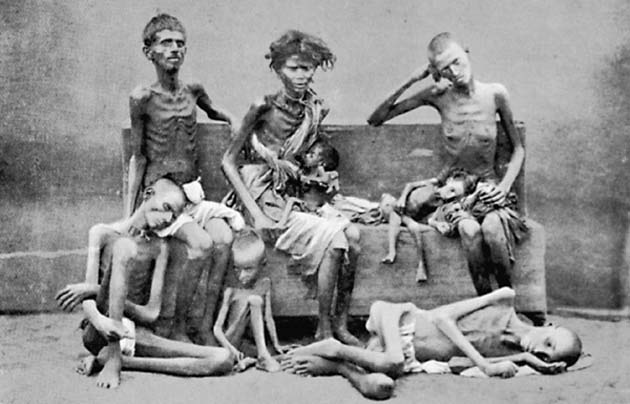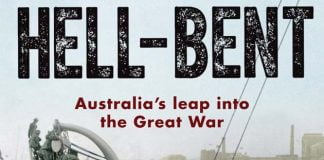The Gallipoli campaign was not about democracy, but defending the profits and colonies of the British empire, one of the most brutal the world has seen, writes James Supple
The 100 year anniversary commemorations of Gallipoli will glorify it as sacrifice for a noble cause. Tony Abbott has called it part of a war that “shaped our nation”. In 2012 then Prime Minister Julia Gillard declared on Anzac Day that, “all of us inhabit the freedom the Anzacs won for us”. But Gallipoli and the First World War was no fight for freedom or democracy.
The landing at Gallipoli was an invasion of a Middle Eastern country, modern Turkey, in the service of what was, at the time, the world’s largest and most powerful empire. Australian troops at Gallipoli were among almost half a million British, Indian, New Zealand and French colonial troops who landed there.
At the time, Australian troops were celebrated as dying in the service of empire. As historian Mark McKenna has pointed out, “For decades following 1915, the Imperial context of Anzac Day had been fundamental to the rituals and meaning of 25 April; newspapers, for example, commonly placed the king’s or queen’s message on the front page.”
Tony Abbott has lined up with conservative historians to declare the war necessary because, “Europe was at risk from Prussian militarism”. But the First World War was fundamentally a clash between rival European powers for control of colonies and profits. It was a product of fully modern capitalist economies engaged in brutal industrial slaughter.
Bloody empire
Today some still defend the British empire as a civilising force that helped bring economic development to colonies like India. In reality it was a brutal arrangement through which Britain plundered the world, based on sheer military terror and bloodshed.
Britain began constructing its empire in Ireland, effectively its first colony. In 1609 it drove local peasants off their lands and settled English and Scottish colonists in the “plantation of Ulster” as an effort to maintain control. Huge rents were imposed on Irish peasant farmers that kept them in poverty.
The failure of the potato crop between 1845 and 1852 caused a famine in which one million died. Although Ireland was still producing enough to feed the population, the British government allowed merchants and landlords to continue exporting grain abroad for profits while its people starved.
After 1690 Britain shipped three million African slaves to its profitable sugar plantations in the Caribbean. This regime of unimaginable brutality relied on literally working slaves to death: the lifespan of those that survived the trip across the Atlantic was just seven to ten years. Savage punishments were required to maintain it. The Baptist missionary William Knibb recorded that, “flogging on the estates is as common as eating almost”.
There were constant slave revolts and resistance. In 1791 a revolt swept the French slave colony of St Dominique, spreading across much of the rest of the Caribbean. By 1798 Britain had lost 55,000 soldiers putting down the rebellions. A further massive revolt followed in Jamaica in 1831.
It was these rebellions that convinced the British ruling class of the need to abolish slavery. The importance of the plantations in generating their wealth was also in decline as Britain developed as an industrial power. Yet even when they ended slavery in 1833, it was the slave owners who received compensation, not the slaves.
“New world” horrors
The colonisation of the “new world” across North America, New Zealand and Australia involved slaughter and genocide against the indigenous inhabitants. The first British colony in north America was established in 1607 in Virginia.
When the settlers struggled to feed themselves at first, the local indigenous people gave them food that helped them survive. But once they were established the British set out on a policy of extermination. They burned crops and villages, and massacred women and children in punitive raids.
When the local Powhatan Indians finally struck back after years of harassment and provocation, killing a number of the settlers, the English refused to discuss peace and spent the next decade hunting down and killing the local population. In 1623 they invited over 100 Powhatan to a banquet, supposedly to discuss peace, and poisoned them.
Britain’s loss of its American colonies spurred it to grab larger parts of Asia and Africa. The British East India Company began the plunder of the subcontinent with its own private army. It ruled large parts of India from 1757 until 1858 when the British government took full control.
The East India Company established a monopoly on all trade out of India. The country’s textile industry was destroyed by seizing Indian cotton for export to British factories, where it was turned into cheap cloth that flooded the Indian market.
British rule also resulted in frequent famines that killed between 12 and 29 million Indians, according to Mike Davis’s in his book Late Victorian Holocausts.
In 1876 when famine hit there was an overall surplus of rice and wheat in India but, as in Ireland, the British Viceroy refused to stop its export to Britain. While peasants starved a law was passed which banned “at the pain of imprisonment private relief donations that potentially interfered with the market fixing of grain prices”. Again government policy imposed starvation in defence of British profits.
Empires at war
It was these spoils that Britain and its armies were defending in the First World War.
Egypt had been invaded in 1882 in order to ensure the repayment of debts run up to British and French investors on extortionate terms. A new nationalist government had attempted to throw off “supervision” by the British and French governments. The decisive battle at Tel-el-Kabir was more like a massacre, with 57 British soldiers killed and between 2000 and 10,000 Egyptians.
During the First World War, British troops based in Egypt, including Australian light horse regiments, invaded the Ottoman provinces in Palestine and Mesopotamia.
At the war’s conclusion Britain took control of modern day Iraq and Jordan as well as Palestine, while France gained Lebanon and Syria. Promises about establishing an independent Arab state, which Britain made during the war to secure military support against the Ottomans, were simply dropped.
When Egypt staged a nationalist rebellion in 1919, Australian troops were used to help crush it. Australian light horse units had been waiting in Egypt to sail for home at the end of the war. But with few other British troops in the country they were ordered to help re-establish British rule. Australians were sent out to machine gun crowds of protesters. By the time the revolt was crushed in April 1919, over 1000 Egyptians had been killed, 1500 jailed and 57 hanged.
Winston Churchill, the man who ordered the assault on Gallipoli, sent in British planes dropping poison gas to put down the uprising in Iraq which followed in 1920.
After the Second World War the US succeeded Britain as the world’s foremost imperial power. While it stepped back from use of direct imperial control, it has proved just as willing to overthrow governments that defy its wishes and which harm the interests of US multinationals.
Just as Australia sat under the British umbrella in the First World War, it now works in partnership with US imperialism, joining its imperial adventures from Vietnam to Iraq and Afghanistan.
Nothing in this tradition of empire and plunder is worth celebrating.
Photo above: Victims of the famine in India as a product of British rule in 1876






